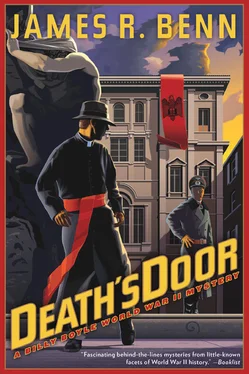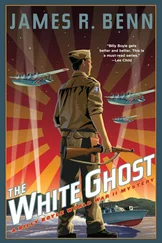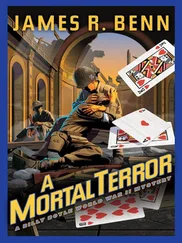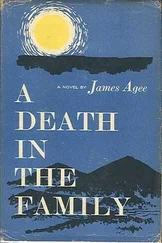James Benn - Death
Здесь есть возможность читать онлайн «James Benn - Death» весь текст электронной книги совершенно бесплатно (целиком полную версию без сокращений). В некоторых случаях можно слушать аудио, скачать через торрент в формате fb2 и присутствует краткое содержание. Жанр: Шпионский детектив, на английском языке. Описание произведения, (предисловие) а так же отзывы посетителей доступны на портале библиотеки ЛибКат.
- Название:Death
- Автор:
- Жанр:
- Год:неизвестен
- ISBN:нет данных
- Рейтинг книги:4 / 5. Голосов: 1
-
Избранное:Добавить в избранное
- Отзывы:
-
Ваша оценка:
- 80
- 1
- 2
- 3
- 4
- 5
Death: краткое содержание, описание и аннотация
Предлагаем к чтению аннотацию, описание, краткое содержание или предисловие (зависит от того, что написал сам автор книги «Death»). Если вы не нашли необходимую информацию о книге — напишите в комментариях, мы постараемся отыскать её.
Death — читать онлайн бесплатно полную книгу (весь текст) целиком
Ниже представлен текст книги, разбитый по страницам. Система сохранения места последней прочитанной страницы, позволяет с удобством читать онлайн бесплатно книгу «Death», без необходимости каждый раз заново искать на чём Вы остановились. Поставьте закладку, и сможете в любой момент перейти на страницу, на которой закончили чтение.
Интервал:
Закладка:
Maybe they were. I’d been out of touch for a while, and the situation in the Anzio beachhead had never been good. It was only thirty or so miles away, and as I snuck a look at the Gestapo men and the other officers idling in the lobby, I wondered if they ever heard the guns when the wind carried toward Rome, and feared for what was in store for them. They were the lords of Rome, but there had been plenty of those over the centuries. The thought gave me courage, so I put the newspaper aside and rose, adjusting my fedora at a jaunty angle, and made for the door.
One of the Gestapo men rose and pointed a finger at me. “Darf ich Ihre Zeitung lesen?”
I stopped, feeling a cold sweat at the small of my back. I didn’t understand him and had no clue what to do. I struggled not to say a word, since anything I said would betray me.
“Giornale,” the other one said, pointing at my newspaper.
“Si,” I said, happy that I could get away with a one-word response. I smiled and nodded my head. “Si,” I said again, figuring one more time couldn’t hurt. I got a polite “Danke” in return.
As I departed, I could sense them following me with their eyes. I put my head down and walked away from the church, in case they were onto me. I took a left to get off the street and found myself not far from the Excelsior Hotel. German headquarters was not a good destination, so I reversed course and watched the road from a corner. No Gestapo. That was either a good sign, or they’d cordoned off the area.
I took my time, gazing in shop windows and watching for the reflection of a tail. There was nothing out of the ordinary beyond what passed for city hustle-bustle in wartime Rome. Lots of uniforms and skinny civilians pretending life was perfect. I followed suit and made my way down to the piazza, ready for another run at the Spanish Steps.
The day had warmed, so I unbuttoned my coat and pushed back my hat. I took the steps more quickly this time, passing the same sweepers I’d seen before, even though the steps didn’t seem to need another cleaning. No one paid me much mind, as far as I could tell. In front of the church, the two sweepers I’d seen from the hotel were returning in the opposite direction, working their brooms and dustpans like there was no tomorrow. Poor choice of words, I thought grimly.
I climbed the steps to the church entrance. That bit of extra height gave me an extraordinary view of the city. Maybe when we took Rome, I thought, Diana and I could come here and enjoy the sights. Have a drink at the Hassler. Be the lords and ladies of Rome.
Inside, the church was long and narrow, with small chapels along either side. Sunlight filtered in through the high stained-glass windows, and the footsteps of worshippers and curious soldiers echoed off the marble floor. Germans took photographs. Old women, hunched over in black dresses, knelt and prayed. Half a dozen monks, probably the same group I’d seen earlier, sat in the front pew, their heads bowed. No Remke, no Gestapo, as far as I could see.
I left and made another circuit, walking down the Via Condotti, looking at the sites, then going back up, giving me a direct view of the steps. I could make out the same blue coveralls among the field-gray and dark overcoats. I hadn’t seen much of the city, but I don’t think I’d seen that many municipal workers that hard at work in my life. Not much like Boston.
If it were a setup, they would have made me already. So why hadn’t I been taken? Because they wanted Remke? Maybe they had no idea about me, but knew Remke would be here, out in the open. Maybe. Maybe I was nervous in the service.
The hell with it, I told myself. I crossed the piazza, stopping to browse the wares of a few sidewalk vendors who had set up tables at the foot of the steps. Secondhand clothes, books, china knickknacks. A few paintings. No food in sight. These were probably families who were selling off their possessions, hoping to trade for bread. But the Germans were the only ones who had money and food, and what did they care for an Italian’s castoffs? They could snatch whatever they wanted.
I retook the steps, ignoring the sweepers, not caring why they were wearing down the steps with their brooms. I checked my inside pocket, the feel of the folded papers reassuring. At least I had a chance. Probably more than the poor souls in the piazza selling off Grandma’s crockery had. Entering the church, I let my vision get used to the dim light and walked the perimeter, admiring the artwork in each chapel and eyeing the other gawkers and worshippers.
The monks were gone; no, two of them were standing near the confessional. Maybe one of their pals was inside confessing his sins. How much trouble could a monk get into, anyway? A couple of nuns walked past, their rosaries clicking as they moved. I took a seat in a rear pew, drawing my coat around me. It was cold in the church, and I shuddered. I had about a half hour to go. I checked the letters for the hundredth time. I checked the Beretta, feeling the grip, remembering the Fascist I’d killed in the rail yard. I glanced at the confessional, and decided against it.
The harsh click of boot heels sounded to my rear. The footsteps were determined, not the casual stroll of a sightseer. I stood, ready for the worst.
“Billy,” came a whisper at my back. “You forgot my uniform. Not to mention the handmade Italian leather boots. Now follow me.”
I stood, waiting for Dieter to get a few steps ahead, marveling at how cool and collected he seemed. Which was probably the point of being cool and collected. The church remained quiet, a few nuns still at prayer, the monks at the confessional. One of the camera-toting soldiers strode ahead of Dieter and opened a door adjacent to the main entrance. He held it for both of us, and I wondered how many of the sightseers were actually Remke’s men.
The light outside was blinding after the dim interior, and I blinked my eyes to adjust. We were on a staircase leading to the side door of the church, with a high balustrade that gave some cover. Remke stood with his back to me, surveying the piazza below.
“What do you have for me?” His tone was sharp, demanding.
“The letter from Montini,” I said, reaching into my coat. Dieter flinched, his hand going to his holster. Force of habit, I figured. I withdrew the envelope slowly, letting him see it. I thought he might give a smile and an apology, but his hand stayed where it was. Only his eyes moved. Remke snatched the envelope and opened it. He read, the breeze fluttering the edge of the pages. It seemed to take forever. I scanned the crowds, wondering where Diana might be.
“I didn’t like the looks of the street sweepers,” I said. “Too many of them.”
“They are ours,” Dieter said. “We’ve been watching you.”
“What about the two Gestapo men in the hotel lobby?”
“They are watching a general who is having an affair with the wife of a Turkish diplomat. Decidedly un-Aryan of him.”
“This,” Remke said, his voice grim and his hand shaking. “This is all you have?”
“It’s diplomatic language,” I said, trying to calm him. “You have to read between the lines.”
“Idiots!” Remke shouted. “What do they expect to come of this watered-down drivel? I give you a valuable document about the crimes of the Nazi regime and your friends at the Vatican cannot even acknowledge that we are risking all to topple them? This is dishwater. Nothing. I could have given that report to a newspaper in Switzerland and gotten more out of it.”
“It was the best Montini could do. Koch’s raids on Vatican properties in Rome have gotten the Pope nervous about an invasion of the Holy See, so he didn’t want to risk bringing it to his attention. He thought half a statement was better than none.”
Читать дальшеИнтервал:
Закладка:
Похожие книги на «Death»
Представляем Вашему вниманию похожие книги на «Death» списком для выбора. Мы отобрали схожую по названию и смыслу литературу в надежде предоставить читателям больше вариантов отыскать новые, интересные, ещё непрочитанные произведения.
Обсуждение, отзывы о книге «Death» и просто собственные мнения читателей. Оставьте ваши комментарии, напишите, что Вы думаете о произведении, его смысле или главных героях. Укажите что конкретно понравилось, а что нет, и почему Вы так считаете.












